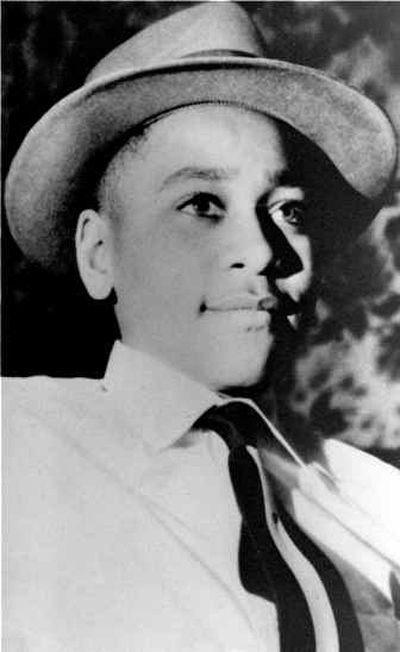Lynching victim’s body to be exhumed

The body of Emmett Till will be exhumed within the next few weeks so an autopsy can be performed, authorities said Wednesday, 50 years after the black teenager was savagely murdered in the Mississippi Delta in a case that electrified the civil rights movement.
An autopsy of Till’s remains, buried in the Chicago suburb of Alsip, Ill., was ordered by District Attorney Joyce Chiles in Greenville, Miss., who is investigating the 1955 slaying with the help of the Department of Justice and the FBI.
“The exhumation will take place in the next few weeks,” said Deborah Madden, a spokeswoman for the FBI’s office in Jackson, Miss. “Previous investigations did not perform an autopsy, even in 1955. Consequently, no cause of death was ever established.”
A spokesman for the Cook County Medical Examiner’s office said the chief medical examiner, Edmund Donoghue, “made some arrangements … to” unearth Till’s remains.
Authorities in Mississippi and Washington announced last year that the case would be reopened after a documentary by New York filmmaker Keith Beauchamp claimed to have uncovered new evidence about the case.
Till’s lynching on Aug. 8, 1955, in segregated Money, Miss., touched off intense mourning throughout black America and helped give rise to the modern civil rights movement.
At the funeral, Mamie Till Mobley insisted on an open casket to expose the brutality her son suffered. She died two years ago and is buried next to her son.
Till was a brash 14-year-old from Chicago who knew nothing of the Jim Crow South. While visiting family members, he whistled at a white woman in a local store. Frightened relatives rushed him home but he was later abducted, and fishermen discovered his badly beaten body in the Tallahatchie River.
Roy Bryant, the husband of the woman Till whistled at, and his half brother J.W. Milam were charged with the killing but acquitted of murder. The all-white jury returned a verdict less than two hours after a defense attorney pleaded with them to honor their forefathers by refusing to convict white men for killing a black person.
Bryant and Milam later admitted in a Look magazine article to torturing Till. The two said they pistol-whipped the teen, shot him, tied his mutilated body to a large metal fan and tossed it into a river. Both men are now dead.
The Department of Justice failed to pursue the case before a five-year statute of limitations on federal charges expired. There is no statute of limitations on state murder charges.
Beauchamp’s film, “The Untold Story of Emmett Louis Till,” claimed it discovered evidence that Bryant and Milam may have had assistance.
The case is one of several murders in the South from the civil rights era that have been reopened in recent years. In 2003, Earnest Avants was convicted in the 1966 killing of a 67-year-old black handyman in a botched attempt to try to lure Martin Luther King Jr. to the area. In January, Edgar Ray Killen, now 80, was arrested for the murders of three civil rights workers in the case dramatized in the movie “Mississippi Burning” and faces trial this summer.